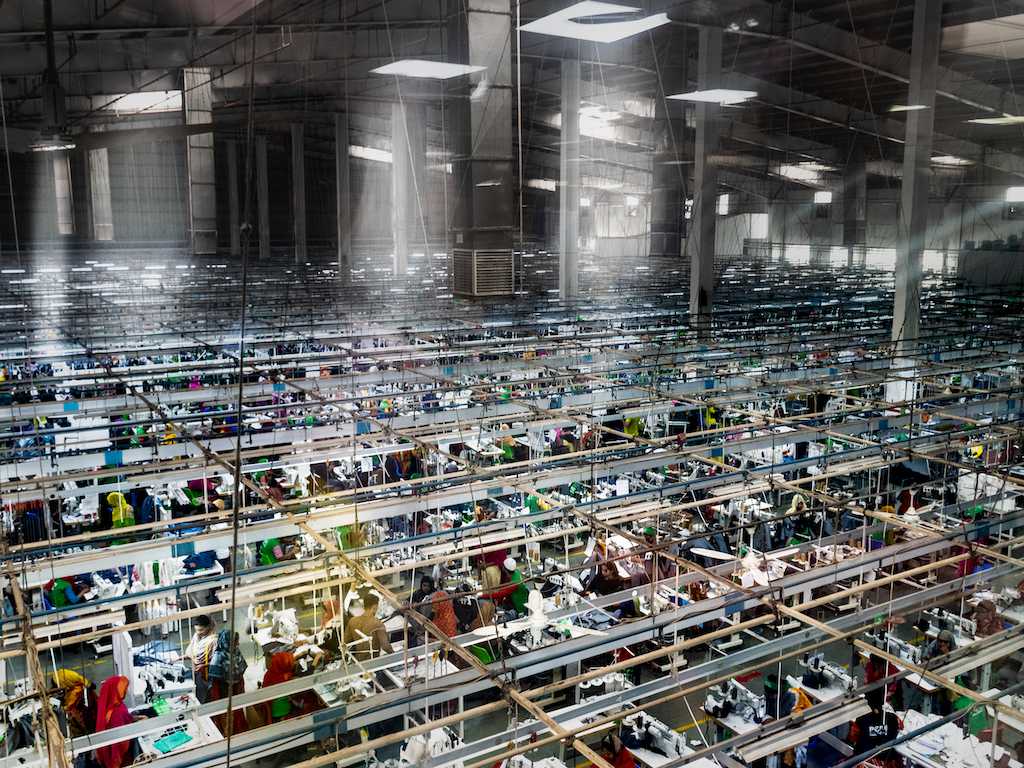Fast Fashion Giants Backside Bangladesh Recycling Scheme In Sector Push To Go Circular

Image: Collected
Big fashion labels are hopping over the sustainable bandwagon, backing a new recycling scheme on Bangladesh garment factories. This program will see makes like H&M, Bershka, Marks & Spencer, Bestseller and others forge professional partnerships with textile and garment makers and recyclers to reintroduce post-production fashion waste back into their products, as well as find new ways to fix the pile-up of deadstock therefore of the pandemic.
Over 30 of the world’s biggest fashion brands are actually joining a new initiative targeted at capturing and reusing textile waste in Bangladesh, in the latest push organised by the Copenhagen-based nonprofit Global Fashion Agenda (GFA) to help make the industry go circular. Among a number of the labels participating in the brand new Circular Vogue Partnership include Inditex-owned Draw & Bear and Bershka, Bestseller, H&M Group, Marks & Spencer (M&S), OVS, C&A and Focus on Australia.
They will be dealing with GFA and its partners, which include online waste tracking platform Reverse Resources, The Bangladesh Garment Manufacturers and Exporters Association (BGMEA) and P4G, an organisation focused on delivering the U.N. Sustainable Production Goals (SDGs).
Recyclers who are joining the program include H&M and Patagonia-backed Finnish biotech Infinited Fiber Organization; Lenzing AG, the manufacturers of Tencel; Swedish startup Renewcell known because of its Circulose fibres; among many others.
Together, the manufacturers, makes and recyclers try to develop and implement new systems to recapture and redirect post-production fashion waste back into the supply chain to create new products, aswell as finding solutions to manage the coronavirus-related pile-up of deadstock.
In April 2020, most of the biggest brands popular, including brands like Walmart and Primark, had to fight back criticism over their cancellation of orders from factories in Asia which have either been completed or already in the developing stage, threatening currently vulnerable textile workers with the increased loss of income alongside the threat of a deadly disease.
M&S, Bestseller and C&A - three corporations who are actually participating in the brand new Circular Vogue Partnership - were also known as out for failing woefully to pay workers during the pandemic.
Bangladesh may be the focus in this recent recycling program because despite possessing the most in-demand and recyclable manner waste of any textile creating country, a lot of the waste is being exported or downcycled - found in what the GFA calls a good “substantial opportunity” of value technology being lost for the household economy.
“Bangladeshi factories typically produce much larger volumes of the same item, meaning that waste is more standardised. So, Bangladesh could be a global head in the area of circular economy,” described Miran Ali, director of the BGMEA.
GFA’s ability to attract a large cohort of big manner players to become listed on the initiative comes amid the pressure that the industry offers been facing above its polluting operations recently. Figures showing the industry’s purpose in fuelling 10% of the global carbon footprint and the truckload of textiles staying landfilled every single second have triggered an uproar between increasingly conscious buyers, vowing to carry brands accountable over climate actions.
But until now, authorities say that large-scale projects like this latest recycling program found in Bangladesh possess yet to get implemented to ignite industry-huge shifts.
“Brands are building strong commitments and targets towards circularity however, there aren't many scalable choices for circulating and handling waste products,” said Ann Runnel, CEO of Reverse Means. “In this project we move our focus on practical solutions…Post-production waste is currently the reduced hanging fruit for assisting this emerging recycling industry to begin closing the loop at scale.”
GFA hopes that the successes out of this program will provide advice to exporting circular models to other textile producing countries, such as for example Vietnam and Indonesia, in the years ahead.
“To determine a circular fashion program we must reimagine the production procedure so that it appreciates the worthiness of textile waste,” commented Morten Lehmann, CSO of the GFA. “I am confident that people can demonstrate a strong business model for circularity which can be mirrored by others later on.”
Source: https://www.greenqueen.com.hk
Previous Story
- Little garment factories struggling to stay afloat
- Circular economy on RMG: Reducing and reusing waste...
- Amid industry upheaval, Bangladesh is a safe couple...
- BGMEA to start automation of UD issuance Jan...
- Bangladesh garment industry 'on danger' - BGMEA
- Big blow for the big industry
- Investment Summit to attract Dutch investors in key...
- Signal FTAs with Asean, raise export, investment